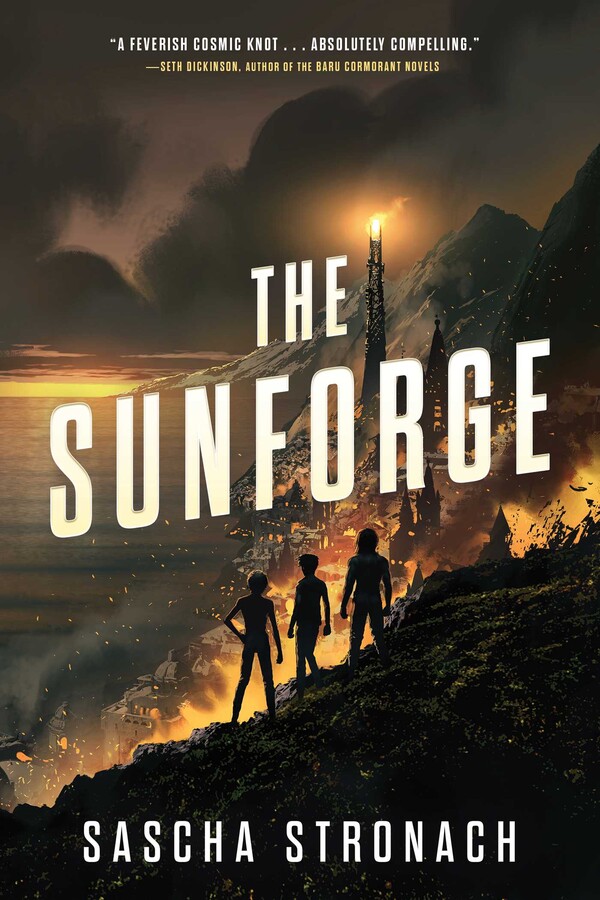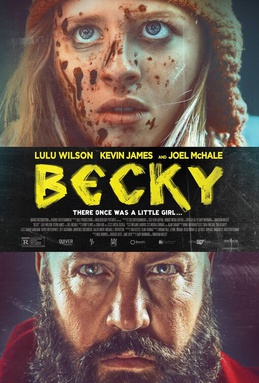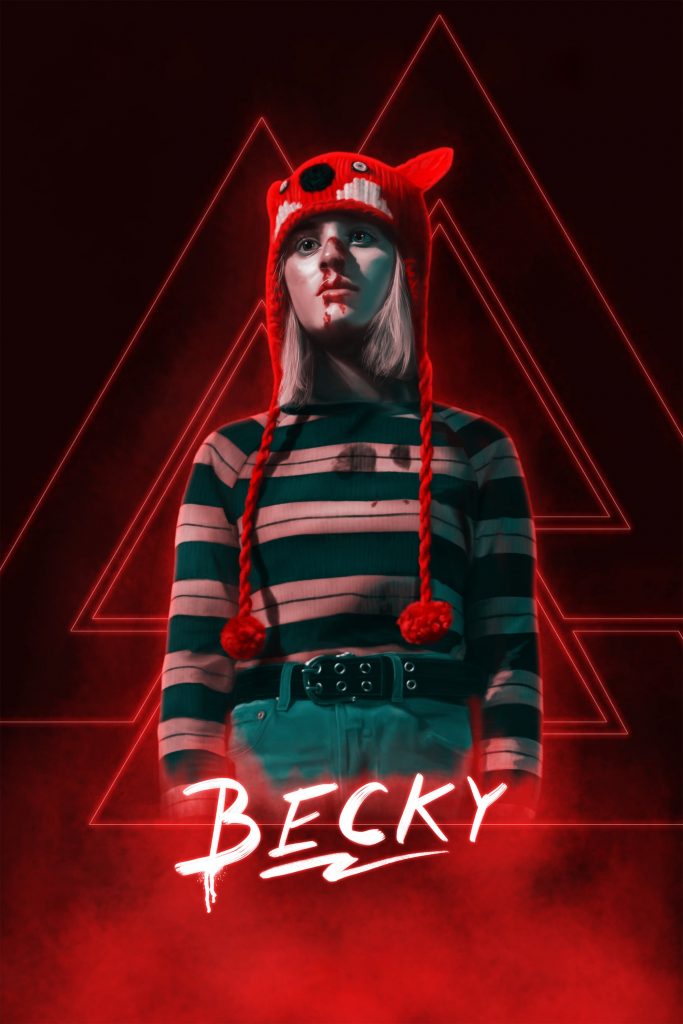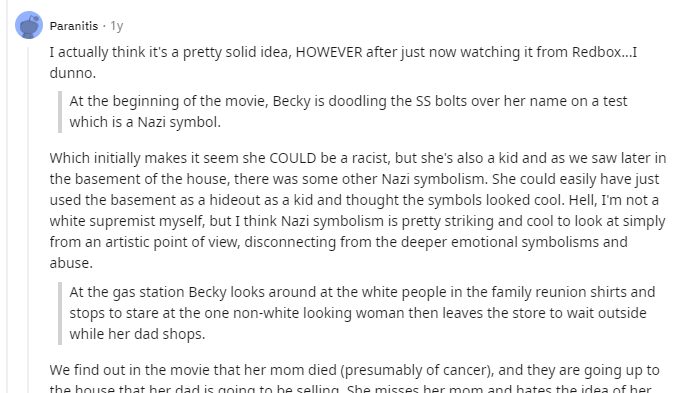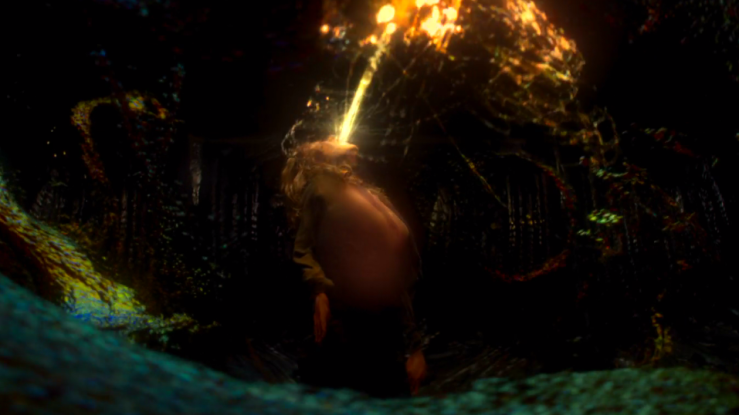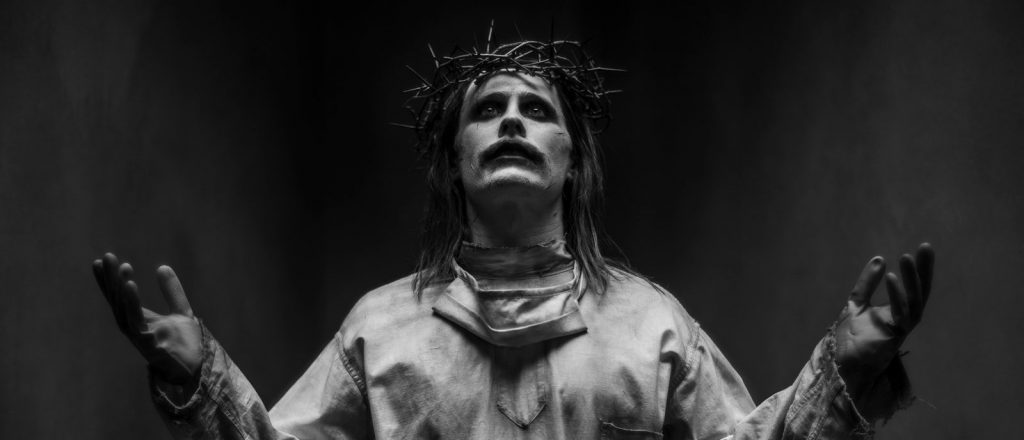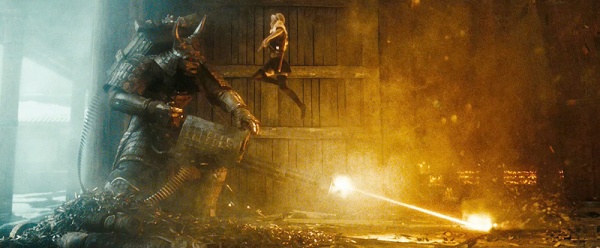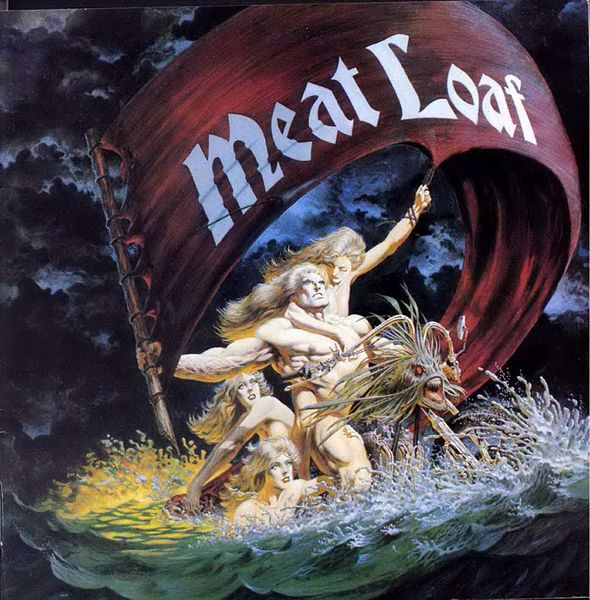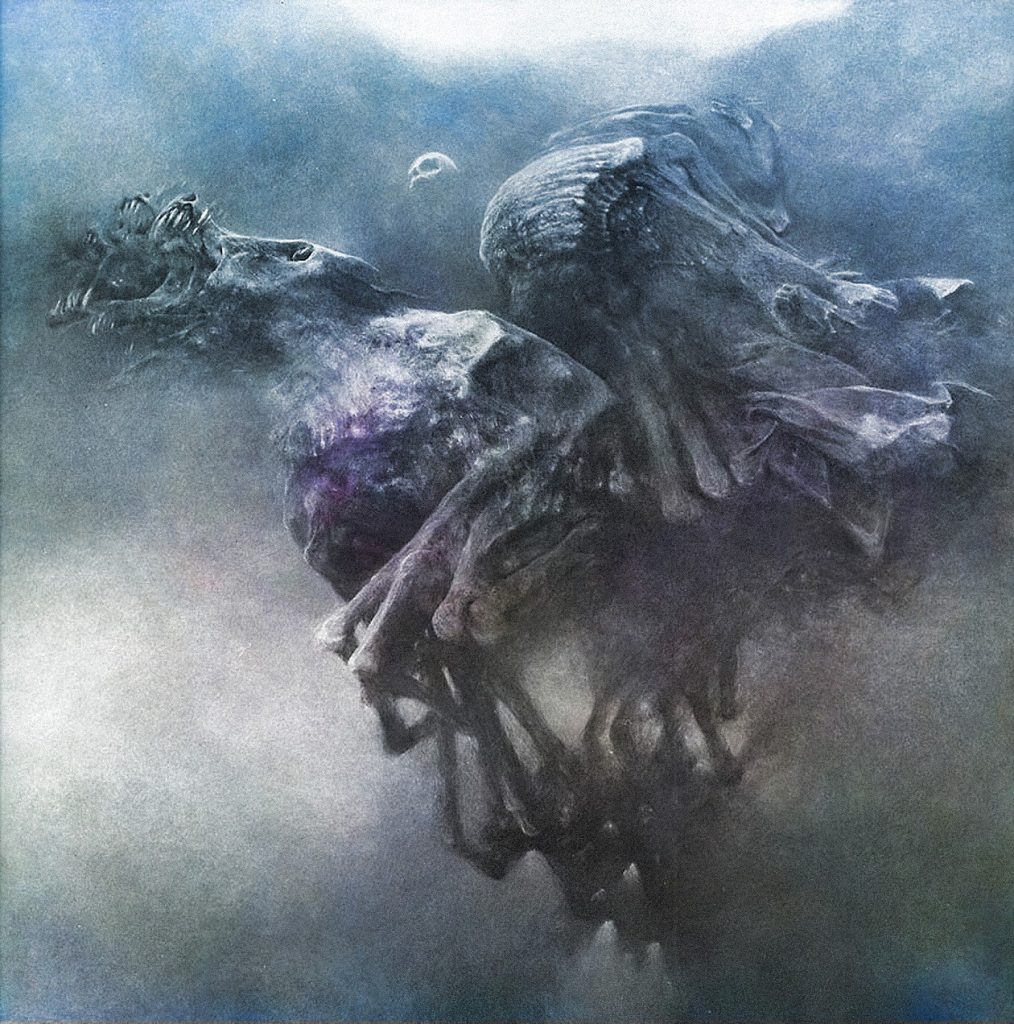Halfway through a session of D&D and the party have found an obviously-trapped treasure room. The rogue has written TRAP on the door in chalk. The players see this, and have decided to spend a solid half hour of real time walking into it, setting it off, desperately rolling saves to avoid being crushed, then backing out and trying again. The thesis seems to be that it has a pre-set damage limit and they can brute force their way to victory.
This thesis turns out to be correct, but at this point in our story I don’t know that yet and I’m bored out of my mind. I’m sitting there thinking about technology, and the way we interact with it, and the way we navigate the digital landscape – software has become so complex it’s almost impossible for laypeople to understand, so we skate on the surface and learn to look for signs that emerge from beneath the ice. We don’t have the information necessary to understand WHY, but we still have to exist in digital space so we develop practical navigation techniques based on what we do know.
Like, oh I dunno, AI being bad at hands.
Which I thought was a pretty interesting analogy to a lot of indigenous knowledge that tends to get written off as ‘superstition’. You probably can’t tell me why an AI is shit at doing hands but you can USE the hands to spot it right away; my tūpuna couldn’t tell you WHY dried specimens of laetiporus portentosus were so good at carrying fire long distances but they sure as hell carried that fire. At no point in history have people ever stopped being people.
We don’t always understand that though. Richard Dawkins certainly didn’t when he started a firestorm last year over the teaching Mātauranga Māori in schools and it’s been on my mind. Just as we live in a digital environment, our ancestors lived in forests and mountains and plains and they knew them like we know our tech, not in ways that require hundreds of thousands of words of jargon but in ways that worked. Tohoho look at these savages using inductive reasoning to come to practical solutions.
And, y’know, there are modern Māori mycologists in universities studying laetiporus portentosus, it’s not like it had to stop there, and it’s not like modern mātauranga doesn’t incorporate modern scientific understanding, but if you’re stuck in the bush and need to move fire from place to place, that’s not necessary, you just need to know which mushroom to look for. We look back on the past with a sneer of condescension and assume we’re better than them because we have smartphones. Can you tell me how your smartphone works from an engineering perspective? Can you build one from scratch? No, you push the buttons and it does what you need. I’m not being judgemental here, it’s just a fact, we’re living in an increasingly complex world and it’s important to stay humble about that, and maybe develop more of an empathy for the past in the process.
Then I did the fucking stupid thing: I tweeted about it.
Not being particularly precise with my language because I really didn’t expect it to go anywhere, half-focusing on Twitter and half-focussing on the party faffing about with a trap, I fired off some quick thoughts. It got more traction than I was expecting but it was easy to ignore, people on the internet are allowed to be wrong. I grizzled a bit and got back to D&D, they’d successfully traded half their health for a necklace of fireballs and were actually moving. We finished the session, I went to bed. In the morning I checked Twitter and found all hell had broken loose.
It is currently at 30,000 likes and it’s ruining my life.
There are, as far as I can tell, two main camps, mostly consisting of Americans:
- calling me Matthew Hopkins/a mediaeval peasant and making fun of the savage who thinks photographs can steal your soul
- going OH MY GOD YOU’RE SO RIGHT, AI ARE DEMONS/FAE/CHANGELINGS.
There is a thread you know. Where I panickedly try to get the stuff about mātauranga on the table. It hasn’t really helped. The tweet going viral is the first one, which is a bit vague and makes some poor word choices. I’m not super happy with “superstition”, but it’s one I’ve seen the Dawkins crowd throwing around a lot, it was stuck in my craw, and like I said, the tweet wasn’t an attempt at plumbing the depths of the universe, I was just bored at D&D and the thought popped into my head half-formed and I didn’t really think too hard about it. When it started popping off I made a better attempt to articulate myself. It currently has around 1/20th of the interactions as the first bit.
A writer from The Daily Show snarkily quote tweeted me suggesting I was on drugs. I’ve now seen multiple respected academics and journalists subtweeting me, twitter comedians suggesting that I’m the Victorian Child who’d be killed by being exposed to a cheeto (as I understand it, cheetos are Yank Twisties and they’re a bit shit). It’s all almost-exclusively based off the first bit, and there’s nothing I can do to change that.
I mean you could delete it right?
Oh fuck right, that’s the other thing.
I mean sure I could delete it, but I’m a struggling midlist writer whose last chunk of the advance is almost a year overdue. The only reason I didn’t lose my accommodation last year is because an uncle died; it does not feel good for my soul and anyway uncles are a finite resource and Marty seems fit as a fiddle. In 2020 I went megaviral a couple of times (500k for a terrible dadjoke during the most important and stressful week of my life thus far, jesus christ, had a nervous breakdown afterwards that led some very interesting places that maybe one day I’ll even tell yiz), picked up a lot of new followers, got a lot more people interested in my writing, and I need them to be interested if I’m going to have a career. Publishers don’t really do a lot of book promo unless you’re already huge, and I’m a debut who seemed shit hot in 2020 and I’m doing fine but I could definitely be doing better – the choices right now are scramble up or slide down, and when the ground beneath your feet is collapsing you grab any handhold you can.
I did a book plug in the thread and it’s kinda popping off, as far as any Twitter publicity can. The sort of person who resonates with that tweet in a way that leads to actually reading the fucking thread seems to vibe with the pitch (hey while you’re here). It kinda feels like I’m at minute 25 of throwing myself face-first at a trap and waiting for the necklace of fireballs to fall out. Maybe this time if I can tank the psychic damage of being crushed between two hordes of screaming fuckwits, it’ll be my big break.
It probably won’t, but we’re all stuck on the wheel regardless of how close our legs are to giving out. Anger is engagement, the angry people get you into the houses of the sympathetic people and vice versa, and they both get you into the houses of the people who are going to help you maybe stop worrying about rent for five fucking minutes. If I were more economically stable I’d delete, lock, maybe go on a nice holiday to somewhere further away than Blenheim and let it all blow over. I can’t though, because there’s a tax bill coming and my publisher has ghosted me harder than that lovely sweet guy who spent the arvo taking shotgun blasts of my feelings. He’ll be back, right? Because I kinda need it right now.
Jesus Christ Read The Fucking Thread
Isn’t knowledge great? And there’s so very much of it, like water in the ocean, like ice in the ice caps. The irony hasn’t escaped me that the people who refused to click twice to look for context are the same ones calling me an idiot who lacks critical thinking skills. It doesn’t matter: there are thousands of them and one of me, and I’m the one drowning. Part of me wants to endlessly agonize over word choices here but to be honest, my experiences going viral have taught me that a certain tranche of fuckwits could belligerently misunderstand a box of duplo. If people aren’t mad about this, it’s because nobody’s reading.
My heart is banking on the latter
I won’t speak for my wallet.
